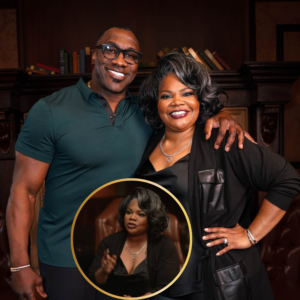“I’m like, ‘Screw guitar, I’m done with guitar.'”

Matt Heafy, the frontman and leader of modern metal band Trivium, reflected on his career and explained a particular challenge that his band faced due to their blend of hardcore and metal.Matt joined Trivium at a very young age. He was only 13 and, although not the original member in a way, he continued carrying this name and making a big thing out of it (kind of like Mikael Åkerfeldt with Opeth). These were the late 1990s and the early 2000s and metal music was going into unexpected directions. So unexpected that young musicians even dared to do the unthinkable — blend hardcore with metal.Jokes aside, Matt opened up on the problems of fitting in, both on the personal and musical level. In a recent podcast episode of the “Origin Story” for Fishman Electronics, he and Polyphia’s Tim Henson reflected on how it was tough for young Japanese-Americans to fit in, comparing this issue to Trivium’s problems of fitting in with the right audiences.
 “When I grew up, I was always too white for the yellow kids, too yellow for the white kids,” said Matt (transcribed by Ultimate Guitar). “I would try to hang out with all the Asian kids and be like, ‘Hey, man, you’re not you’re not full Asian.’ And then the white kids be like, ‘Oh, what are you?'”
“When I grew up, I was always too white for the yellow kids, too yellow for the white kids,” said Matt (transcribed by Ultimate Guitar). “I would try to hang out with all the Asian kids and be like, ‘Hey, man, you’re not you’re not full Asian.’ And then the white kids be like, ‘Oh, what are you?'”
In some ways, this was a similar problem Trivium faced after daring to step into the then-new world of metalcore. He continued:
“And later on, it was like foreshadowing for the band. Like we were always too metal for the hardcore and too hardcore for the metal kids, so it’s this constantly not fitting in.”
The band evolved over the years, gravitating more towards the metal side of metalcore. Nonetheless, Matt and his band were dead-set on achieving their dream, and the first record, “Ember to Inferno,” was released when he was still a teenager.
And this combination of genres is what eventually helped Trivium stand out, and the same could be said about Tim Henson and Polyphia who are also unique in their own way.
“I think that’s kind of what drove you and I to find these things that end up becoming so unique,” Matt said to Tim. “I feel like when people hear you or when people hear me, they’re like, ‘Oh, I know who that is.’ Which is really cool.”
But no matter what, Matt wouldn’t ever be able to achieve his dream of being a professional musician playing music that he actually loves if he didn’t nurture his work ethic. After starting on his guitar journey and joining Trivium before he was even 13, he approached the whole thing as a profession. And it was all thanks to his father:
“Once he saw I had interest in the band — because I joined Trivium at 12-and-a-half… At 13, he started a production company. I was in this thing called OJT — On the Job Training was one of the classes in high school where I could go to my work at the end of the day and take a whole class period for that.”
“But we would log hours. He’d sign off as my boss, but I’d have to log those hours on guitar. So I’d have to sit there, and we timestamp, basically. Alright, you logged into work — practice guitar. Practice guitar seated, standing, practice your metal songs.”
As it usually goes with Boomer dads, there’s always classic rock and hard rock with the usual big names. And it was the same case with Matt’s father:
“My dad always had classic rock playing, and he played guitar a little bit. He loved Led Zeppelin, Boston, Van Halen — those were usually playing. And once I took an interest in metal through Metallica…”
Well, there was stuff before he got into Metallica, and he even wanted to quit altogether:
“First, I tried out for a pop punk band with ‘Dammit’ by Blink-182 when I was 11. It was like ‘Guitars is a cool thing to do, pop punk is basically every kid listened to in Central Florida. I tried out for this band. Thought I made it, they never called me back. I’m like, ‘Screw guitar, I’m done with guitar.'”
Fortunately for Matt, he got around to hearing Metallica’s self-titled record, also known as “The Black Album.” Not only did it change his perspective on music, but it kept him going, and, well — here we are! Matt added:
“And then a kid lent me ‘The Black Album.’ I was like, ‘Oh, I want to copy those sounds.’ I sat in the woodshed until I could do that. And then got in Trivium from there.”
News
Ex-NFL Player Johnny Manziel Issues Apology to Drake for ‘Letting Him Down. tt
The 6 God endorsed the Heisman trophy winner on his 2014 track “Draft Day. Johnny Manziel, once hailed as an NFL star, admitted to falling short of…
Kountry Wayne publicly declared his love for Jess and revealed that social media helped him earn $20M. tt
Kountry Wayne publicly declared his love for Jess and revealed that social media helped him earn $20M Actor Praised for This Joins Shannon Sharpe on His Latest…
Mo’Nique “candidly” exposes her past of being “discriminated” before coming to Oscar glory” tt
From Comedy Clubs to Oscar Success: Mo’Nique Opens Up About Career, Family, and Industry Struggles On ‘Club Shay Shay,’ hosted by former NFL star Shannon Sharpe, Mo’Nique,…
According to reports, Jason Kelce’s wife is “deeply” offended by his controversial nickname. tt
Jason and Kylie Kelce have been tied to each other for some time. Kylie’s connection to the NFL began in 2015 when she started dating Jason, who…
Breaking: “Plus-Size” OF Model Sues Tyreek Hill, Says Dolphins WR Broke Her Leg After She Embarrassed Him During Backyard Football Game. tt
NFL superstar Tyreek Hill broke plus-size influencer’s leg by charging at her with ‘crushing force’ after she humiliated him during practice football drills at his Florida mansion,…
After a picture of Jason Kelce’s 1-year-old daughter appeared online, the entire internet noticed the same thing (PIC) tt
Jason Kelce’s last daughter, Bennie, turned one this past weekend. The newest addition to the Philadelphia Eagles star and his wife Kylie’s family looks just like her dad and…
End of content
No more pages to load











